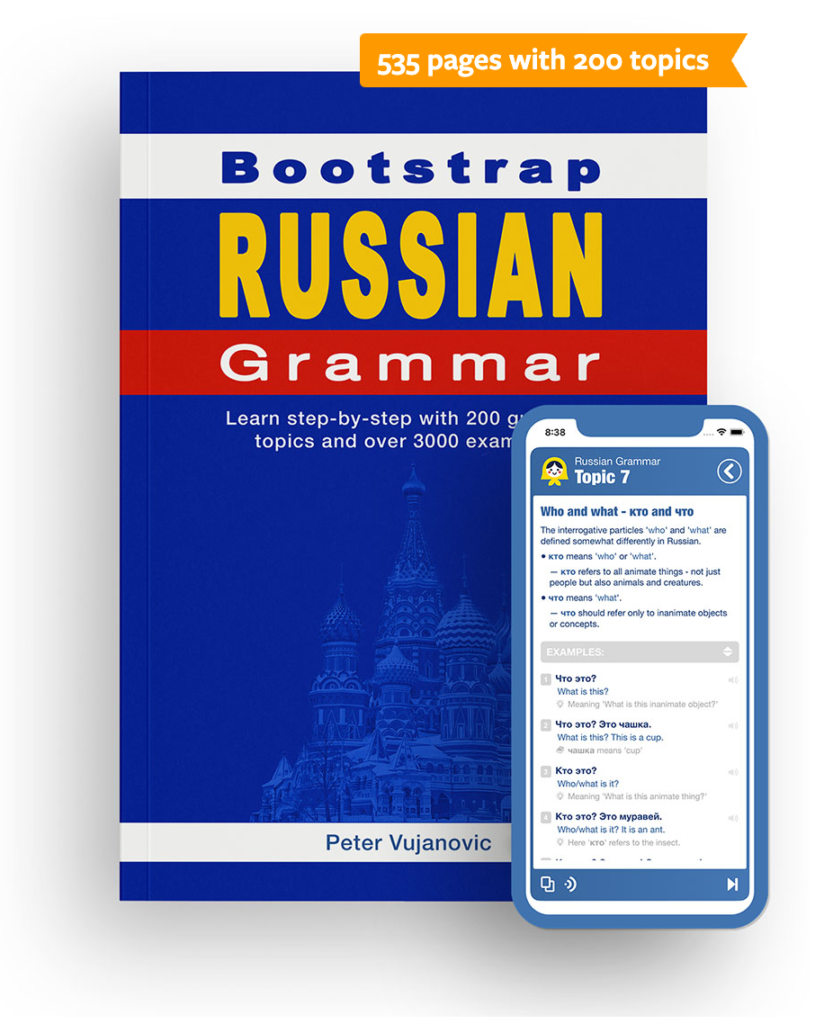
Russian, like most Slavic languages, is quite challenging to learn for English speakers. The United States Foreign Service Institute ranks Russian in its forth tier of difficulty of languages to learn for English speakers – harder than French and German, about the same as Hindi and Turkish but significantly easier than Japanese, Chinese, Korean and Arabic.
Russian is challenging to learn because:
- There is not a lot of shared vocabulary. While there are not many borrowed Russian words in English, Russian does have some English (and French) borrowed words but this does not get you very far.
- Useful cognates include центр (tsenter) – center, студент (student) – student, класс (klas) – class, иде́я (ideya) – idea, но́мер (nomer) – number, фильм (film) – film, метро (myetro) – metro and автобус (avtobus) – bus.
- Russian nouns have one of three genders – male, female and neuter. While at first this might seem daunting, the noun endings very often give away the gender – an ‘a’ ending for feminine nouns, an ‘o’ ending for neuter nouns and a consonant ending for masculine nouns.
- Russian grammar is hard for English speakers – there are no two ways about it. The verbs conjugate according to number, tense and gender. Moreover there are two verbal moods – perfective and imperfective. Nouns, pronouns and adjectives all decline according to number, gender and grammatical function (case). And there are six grammatical cases!
- The complicated grammar is somewhat offset by a very flexible word order and the lack of articles (‘a’ and ‘the’).
- The verbs of motion are complicated. In English we have ‘to go’. But in Russian the verb of motion depends on whether we go by foot or by transport. And whether it is a oneway or return (or habitual) journey.
- Pronunciation is challenging. The actual pronunciation of words is not really difficult for English speakers – the exception being the vowel “ы” which has no equivalent sound in English. And the rolling “R”. The difficulty in Russian is that the position of stress in a word can change the sound of certain vowels. The most obvious example is “o” which when not stressed is pronounced “a”. For example “Большой Театр” is pronounced ‘Balshoy’ since the stress is on the second syllable. To make matters worse, the position of the stress and therefore the pronunciation of vowels can change when a word changes its grammatical function.
- The Russian Cyrillic is easy – that is once you accept that fact that while the letters might look a little like the latin script, their pronunciation is not the same.
- Russian has two levels of politeness (the вы and ты forms) are quite straight forward even though getting comfortable with the situations in each should used can make an English speakers as bit nervous. The fact that they вы form conjugates in the same way as the second person plural (‘you’ as in ‘you guys’) makes things easier.
Ready to learn Russian Grammar step-by-step?

Bootstrap Russian Grammar
A 535-page book and accompanying mobile app.
● Step-by-step introduction to French grammar in 200 topics.
● Over 3,000 annotated examples.
● High-quality audio pronunciations via the app.